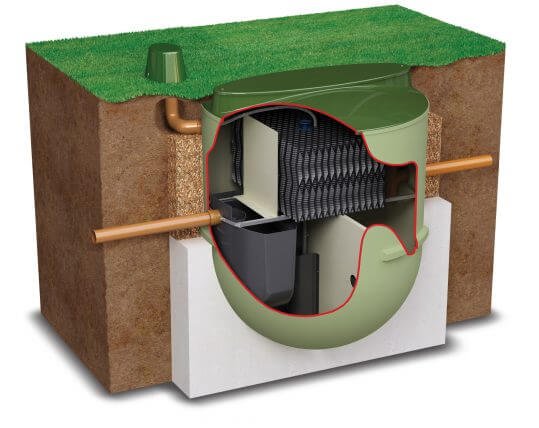All septic tanks that discharge into a watercourse or a ditch in England and Wales will need to be replaced by 1st January 2020. This is a direct result of new rules that have been introduced to address the concerns that waste water is polluting watercourses…

The E-Range sewage treatment plant.
All septic tanks that discharge into a watercourse or a ditch in England and Wales will need to be replaced by 1st January 2020. This is a direct result of new rules that have been introduced to address the concerns that waste water is polluting watercourses.
If you are planning to sell your property before the deadline you must make sure that your tank system has been replaced before you move or have an agreement in place with the new buyers, adds the business.
What changes do I need to make?
The new legislation takes issue with discharging septic tank waste into a watercourse, not the septic tank itself. Therefore, you could keep your tank and discharge the waste into a drainage field instead.
If you choose to install a new drainage field, it must be a minimum of 10m from a watercourse, 50m from a water abstraction point, and 15m from a building.
In addition, if the new drainage field is going to be in or near a designated sensitive area, you will need to apply for a permit from the Environment Agency.
Replacing with a sewage treatment plant
If installing a drainage field isn’t practical, you can opt to replace your septic tank with a small sewage treatment plant instead. Unlike a septic tank, a small sewage treatment plant produces non-polluting effluent, so the system can still be discharged into a watercourse, even under the new rules. They come with benefits such as low maintenance, low running costs and near silent operation.
If you’re one of the 60 per cent of people who need to change their sewage system and the choice seems a little daunting, don’t worry. There’s still time before the deadline.
Please note – the legislation only affects septic tanks in England and Wales; if you live in Scotland or Northern Ireland, different rules apply to you. Contact your Environment Protection agency for more information.







